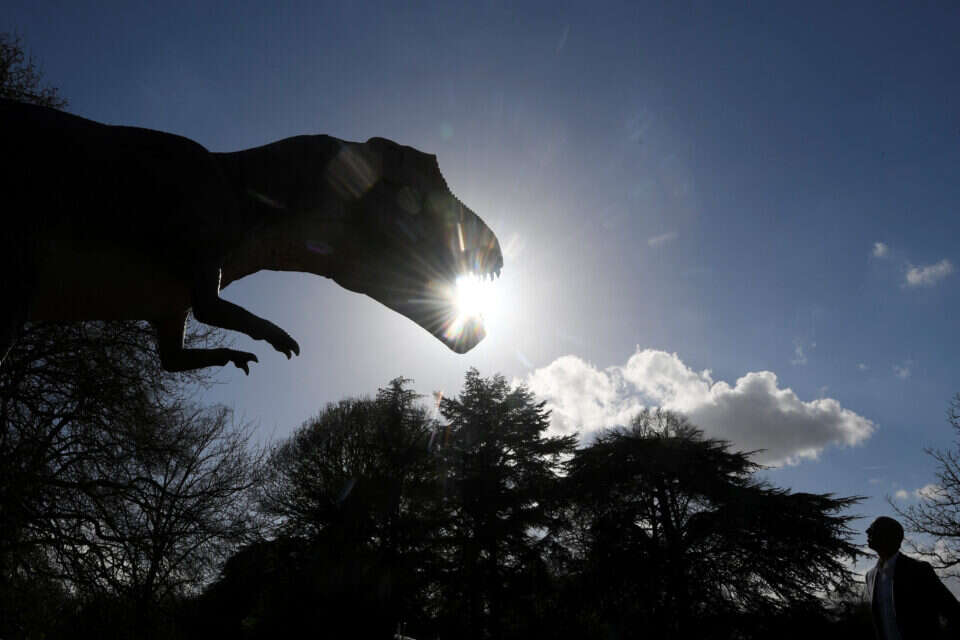Dinosaurs are generally thought to have become extinct when a giant asteroid hit Earth about 66 million years ago. But now, a new study suggests that it wasn't the impact itself that caused the disaster, but rather fine dust that covered the entire world for years. We used ChatGPT to understand how the mighty animals died from tiny particles.
The deadly asteroid, known as Chicxulub, is estimated to be 10 kilometers in size and was probably formed by an asteroid collision near the solar system's borders. It collided with our planet near Mexico's Yucatan Peninsula, leaving a crater 180 km wide and 20 km deep. But its consequences extended far beyond this mighty depression on Earth; The impact created a sequence of events that wiped out 75% of the species living on Earth at the time.
Previous theories about the outcome of the collision have focused on soot and sulfur particles. Soot from fires and sulfur from evaporating sedimentary rocks is suspected of contributing to darkness and a "collision winter" (i.e., a 'rain' of particles that obscured the sky) that halted photosynthesis for almost two years. However, the new study, led by Jem Barak Snell, a postdoctoral researcher in planetary science at the Royal Observatory of Belgium, suggests that dust was the deadliest ingredient of all.
The study was based on a site in North Dakota called Tanis, where a 1.3-meter-thick section of rock preserves a snapshot of the particle rain after impact. Researchers measured the grain sizes in this layer to determine what was emitted into the atmosphere in the collision. Using this data, they created a computer model of the change in air – and we mean it literally – caused by the asteroid impact.
The simulation revealed that fine dust particles, between 0.8 and 8 micrometers in diameter, spread all over the world within a week of impact, essentially enveloping the atmosphere. These tiny particles are smaller than the diameter of an average human hair, but they blocked photosynthesis (the 'respiration' process of plants) on Earth within two weeks, with a long recovery period of 620 days (almost two years). In fact, this scenario is frighteningly similar to the plague of darkness described in the book of Exodus, in which the land of Egypt is so dark that you can feel it.
The enormous amount of fine dust in the air was catastrophic for life on Earth. In contrast to the sulfur particles, which within about 8.5 years mostly disappeared from the atmosphere, the dust particles remained there for about 15 years. The combined effects of these various emissions, mainly sulfur and dust, led to a significant drop of up to 15°C in surface temperature.
The study adds new information about the disaster that led to the extinction of the dinosaurs, but the debate over the exact cause of their deaths has not yet been resolved with certainty. Climate models can change, leading to different outcomes, and more research is needed to fully unravel the mysteries of this prehistoric catastrophe.
Wrong? We'll fix it! If you find a mistake in the article, please share with us

